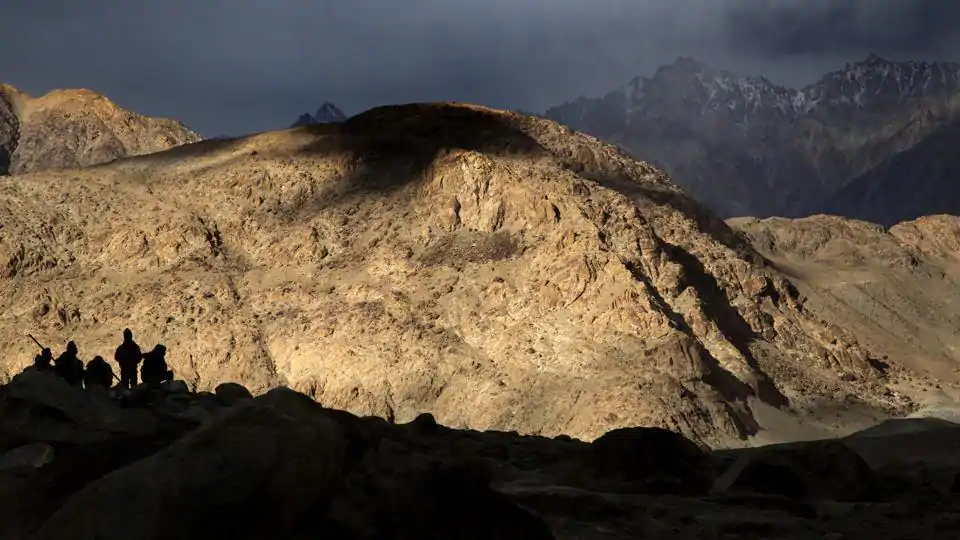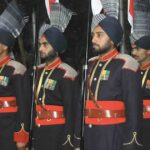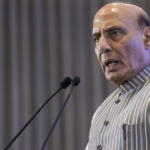
SOURCE: HT
The Indian army suffered multiple casualties, including that of an officer, in a “violent face off” with the PLA on Monday night in eastern Ladakh, the army said in a statement. It added that there were casualties on both sides. These are the first Indian casualties in a clash with the PLA since 1975 when an Indian patrol was ambushed by Chinese troops in Arunachal Pradesh.
HT learns that the officer is the commanding officer of the unit involved in the scrap, and that one of the other casualties is that of a JCO. The army said the incident took place at a time the “de-escalation process” was “underway in the Galwan valley”. Senior “military officials of the two sides are currently meeting to defuse the situation”, the army said, signalling that the efforts to stablise the situation is still work in progress.
All the deaths are from thrown stones and rods that were used by the soldiers, people familiar with the matter said on condition of anonymity. The army did not comment on this. However, this won’t be the first time the two armies have engaged in fisticuffs or used stones as missiles to attack each other in the area.
Army chief General Manoj Mukund Naravane has cancelled a scheduled visit to Pathankot on Tuesday, officials said.
The encounter happened along the contested Line of Actual Control (LAC) in eastern Ladakh where rival soldiers were caught in a standoff that began with a confrontation between rival patrols near Pangong Tso on the night of May 5-6.
The Indian Army is said to have suffered three casualties, including a colonel, in the sector on Monday, said one person familiar with the matter. Both sides suffered fatal casualties on Monday, claimed another person familiar with the matter. Both asked not to be named. The number of Chinese casualties wasn’t immediately known.
The China’s foreign ministry said it wasn’t aware of fatalities on either side.
Zhao Lijian, spokesperson of the Chinese foreign ministry, spoke about the close communication through military and diplomatic channels before going on to blame Indian soldiers for Monday evening’s violent exchange.
“Our border troops had a high-level meeting and reached important consensus on easing the border situation. But astonishingly on June 15, the Indian troops seriously violated our consensus and twice crossed the border line for illegal activities and provoked and attacked Chinese personnel which led to serious physical conflict between the two sides,’’ Zhao said.
The worrying development comes at a time when India and China are continuing diplomatic and military engagements for an early resolution of the standoff between border troops.
The border row seems to have turned from bad to worse even as army delegations from India and China held discussions along the to break the stalemate.
Former Northern Army commander Lt Gen DS Hooda (retd) flagged concerns about the “serious escalation” along the LAC saying that it reflected the heightened tensions on the ground. “This will require diplomatic intervention,” he said.
The talks took place at two locations along the LAC — brigadier-ranked officers met in the Galwan area and Colonel-ranked officers in Hot Springs — as part of continuing efforts to resolve the standoff.
Army chief General Naravane last week said disengagement of Indian and Chinese forces was taking place in a “phased manner” along the LAC where the situation was “under control”.
Limited disengagement of forces at Galwan Valley, Patrolling Point 15 and Hot Springs began after a meeting between Lieutenant General Harinder Singh, commander of Leh-based 14 Corps, and Major General Liu Lin, commander of the People’s Liberation Army?in the South Xinjiang region, on June 6.
India is now focused on resolving the situation on the northern bank of Pangong Tso, which has been at the centre of the ongoing border scrap and where troops are still locked in a faceoff.
Last month’s violent confrontations between Indian and Chinese soldiers in eastern Ladakh and north Sikkim triggered a military buildup on both sides of the LAC that stretched from Ladakh to Uttarakhand, Sikkim and Arunachal Pradesh, as reported by Hindustan Times on Friday.
The Chinese buildup began immediately after clashes between border troops in Ladakh and Sikkim on May 5-6 and May 9, and predated the June 6 meeting between Lieutenant General Singh and his Chinese counterpart.
HT was the first to report on May 10 about border tensions between India and China flaring up when 150 soldiers were involved in a tense standoff in north Sikkim a day earlier. Four Indian and seven Chinese soldiers were injured at Naku La during the confrontation.
Scores of soldiers from the two countries were also injured near Pangong Tso on the night of May 5-6, with the scuffle involving around 250 men.
https://defencenewsofindia.com/indian-officer-two-others-killed-in-clash-with-pla-casualties-on-both-sides/






